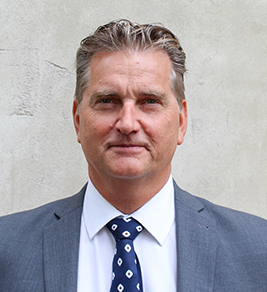If you follow current media coverage of the term “climate bomb”, you may have some difficulty keeping up. Until today, the term has been used to indicate the negative consequences of human emissions of climate-changing gases, such as carbon dioxide and methane (feel free to Google it). The largest carbon emitting countries are China, USA, India, and the USA. The EU27 countries stands for about six percent of global emissions according to UNEP Emissions GAP Report 2022.
Yesterday, the term climate bomb was suddenly used in Swedish media to refer to a decision in the EU Parliament to tighten and expand the European Emissions Trading System (ETS). It is difficult to understand why it is called a climate bomb in media. It is not a sudden event, decisions have been investigated, politically prepared, discussed, and negotiated for a number of years. It is not negative either.
One can simply say that the EU has now done what the EU should do: creating uniform conditions for measures to address common problems that are binding on all member countries in the EU. In my opinion, this is exactly how the EU should function.
Again, simplified, yesterday’s decision is part of the EU’s Fit for 55 package and the decision creates parts of the operational mechanisms to achieve the EU’s common climate goals (Incidentally, Nordregio will publish a report on May 8 that highlights some perspectives of Fit for 55 compared to national legislation and policy in the Nordic countries).
The very positive thing about yesterday’s decision is that all countries in the EU have jointly agreed on ambitious climate goals in the carbon dioxide emissions trading system that will lead to net zero carbon emissions (the careful thinker also considers imports and exports and also other greenhouse gases that are not regulated in the same way; hydrocarbons, nitrous oxides, sulfur hexafluoride, SF6, found in most wind turbines). The framework is (now almost) set and the goal is given. Europe is transitioning!
The political challenge in national parliaments will be to handle the trade-offs and compromises required to solve all the goal conflicts that are now emerging. These difficulties should not be underestimated.
A collision of interests can already be seen in several areas within land- and sea-use: fisheries, agriculture, housing, energy production, shipping, tourism, local business, military, transportation, and utilities infrastructure are all competing for the same patches of planet Earth. In Sweden, nine government agencies are collaborating to find areas at sea for an additional 90 TWh of yearly wind power generation but have only found possible places for 20-30 TWh and colliding interests will have to finally be resolved politically.
Labour markets will be affected, new skills needed, jobs will be created but others might disappear, local, regional and global supply chains will see transformation when products and services change.
Legislation and taxation systems will be affected. Within education and training, support for re-skilling and up-skilling will have to be evaluated and prepared for.
Will popular support continue to be strong if jobs are threatened? How can the groups at risk of being left behind be more actively engaged in discussions and decision-making around the green transition in their communities? The ambition must be to offer meaningful training to those who must change jobs.
Here too, researchers at Nordregio are studying which groups are affected in municipalities and regions throughout the Nordic region, and how household economics can be affected. We have just conducted a comprehensive and unique survey in each Nordic country and self-governing region about people’s concerns and expectations regarding a green transition in their local area. Reports in this series are released on our website.
But the climate issue is not solved solely in Europe. Global negotiations will continue. How will the transition take place in developing countries? How can the EU influence that development? The work has just begun.
Although we can rejoice in that the climate transition in Europe seems to be underway and a framework for future collaborative work appears to be falling into place, there are several other societal challenges that require attention and that we must devote our efforts to in the Nordic region. Without prioritization, I can list a selection: Biological diversity in sea and on land, pandemics, antibiotic resistance, the effects of digitalization, clan rule and honour culture, the long-term sustainability of the welfare system, education, effects of artificial intelligence technology, crime, the quality of university education and research freedom, migration and integration, depopulation, demographics, and a renewed crisis in the population issue, crisis preparedness and military threats.
Take a deep breath, enjoy the fact that the EU works when it needs to, and tomorrow we’ll start anew!


